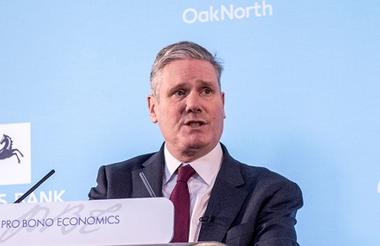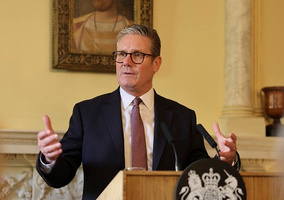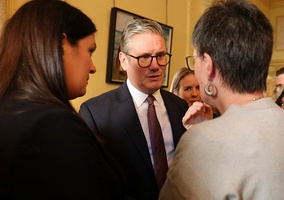July 2025 marks one year since the new Labour government came to power, giving many in the charity sector hope that the disorder and incompetence of successive Conservative administrations would be replaced by a governing body who were altogether more capable, and more compassionate.
Frustratingly, so far it seems that this optimism was misplaced. Labour’s first year will be remembered chiefly for a rise in employer national insurance contributions (NICs) that has clobbered charities while exempting statutory bodies, a series of awkward policy U-turns, and a further dismantling of civil rights and freedoms.
How much embarrassment could the government have saved itself if only it had listened to charities, as it keeps claiming it will do?
Age UK and other charities for older people predicted that the cuts to winter fuel payments for pensioners would go down like a lead balloon. NCVO and ACEVO warned that the NICs rise would be the straw that broke the camel’s back for many smaller sector organisations. Disability charities warned that the welfare cuts would be disastrous. Did ministers pay heed to any of these? No, they did not, and we all know what has happened since.
Yet the government marches forth, seemingly deaf to the protestations of those that are closest to communities, to voters. Civil rights groups are now voicing outrage at the proscription of Palestine Action, and at disturbing new powers aimed at silencing protest that are contained in the new crime and policing bill going through parliament.
The government’s approach to the charity sector specifically has also been less than ideal. Warm words from the prime minister early on about a new covenant with civil society were soon undermined by the NICs increase and health secretary Wes Streeting’s leaked pledge to “break the culture” of charity lobbying. As G&L went to press, the Civil Society Covenant is yet to be published but sector sentiment towards it feels distinctly less favourable than when the idea was in its first flush of youth.
I still don’t detect any genuine connection between the government and the sector – no “society of service” as Keir Starmer had promised. The civil society minister, Stephanie Peacock, reportedly spoke briefly to a group of sector chief executives at an ACEVO event earlier this month, and reeled off all the usual platitudes about wanting to work in partnership – before leaving without taking any questions. My Google alert for her name has still only ever delivered one story relating to charities (other than those in her Barnsley constituency) and she declined to attend the Charity Awards – the biggest and most inspiring celebration of charitable activity in the sector.
Why aren’t all those cabinet ministers with provenance in charities, and the ear of the PM – yes you, Ed Miliband, Peter Kyle, Lisa Nandy – urging him to listen to what the sector has to say? He could save himself a truckload of trouble.
Related articles












